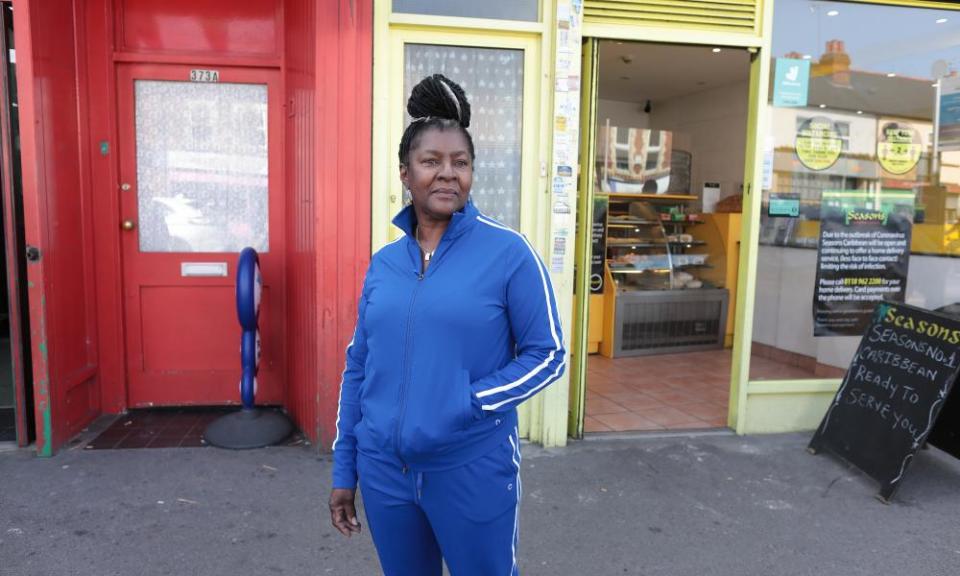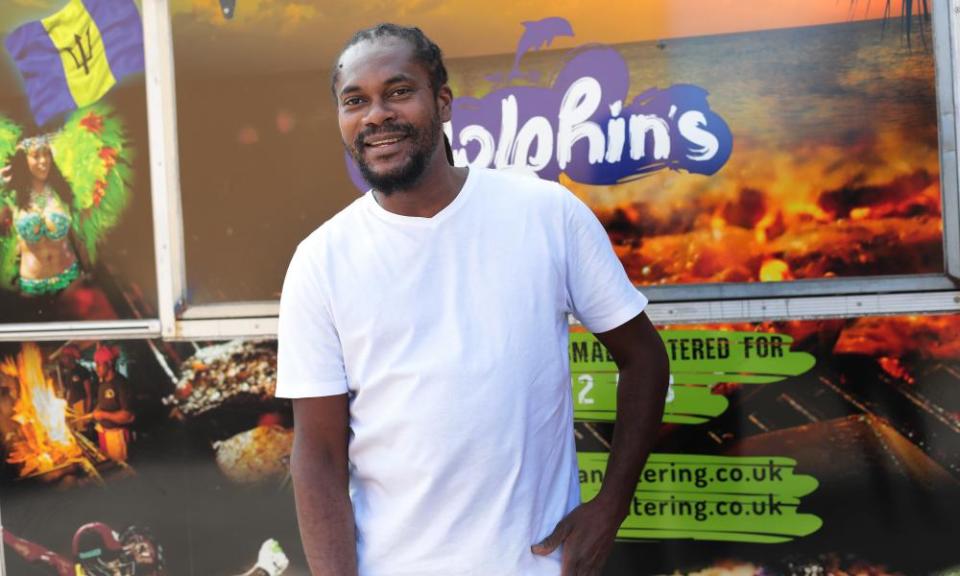'Times have changed': Barbadians in Reading welcome republic plans

An old saying Peter Small learned from his father growing up on Barbados sprang to his mind this week as the Caribbean island declared its intention to remove the Queen as head of state: “Don’t give me a fish. Teach me how to fish.”
Fifity-four years after independence, Barbados stands ready to cast off the final vestige of its colonial past having learned much from its British overlords, Small believes. “The time is right. And the people are ready,” added the grandfather, 75, who lives at the heart of a close community of Barbadians in Reading, home to one of the largest diasporas outside of Barbados.
Today most, like Small, are excited by the prospect for the island, colloquially known as “Little England” since the first English settlers arrived in 1625 to profit from sugarcane plantations and slaves.
Small arrived in Reading at 19, two years before Barbados gained independence in 1966. Since then, his passion for all things Bajan has been injected into countless cultural and community events in this Berkshire town. “I am still a Bajan. I will always be a Bajan,” he announced.
Barbados has flirted with becoming a republic several times before. This time it intends to deliver, its prime minister, Mia Mottley, has said. “And I am so happy for them,” said Small, who worked in telecoms engineering and as a housing manager. He believes the Barbados government should host a referendum on the subject.
He said the monarchy had served its purpose. “Some of my generation may say it’s served its purpose for a long while so why change it?” he said. “But I would say if we haven’t learned in almost 55 years, we ain’t going to learn at all.
“I think the young people will be more for it.”
Sherwin Springer, 63, born in Reading to parents who arrived in the mid-50s, believes “most people really appreciated having the Queen as head of state, but times have changed”.

Young people want to claim their own identity. “It has always been ‘Little England’, and proud of that side.” The strong ties to the UK would always be there but the future would involve “a different way of working”, added Springer, who formerly worked for the Barbados and Friends Association.
As a child, her parents steeped her in Bajan culture – “the food, the social events, everything revolved around Barbados” – and she visited regularly, a tradition she continues with her own children and grandchildren.
“I think a lot of my mum and dad, who aren’t here any more. They would be so pleased that their little island is still standing so well and so strong. First independence and now a republic.”
Randolph Bancroft, 47, a chef, arrived in the UK 20 years ago. The “smells and aromas” coming from the kitchens of his childhood, and memories of roasting fish sold in the streets fresh from the fishing boats, inspire the food he creates at his Dolphin’s Caribbean Catering company, where he is developing his own range of seasonings and sauces.
“I think it’s a good thing, going forward,” said Bancroft, a father of three. “Even though the ties between Barbados and England are so tight, for the younger generation it might give them the chance to lift themselves.”

He is “really proud” to see the island he left “where it is now”. Some Barbadians he has spoken to have concerns over possible erosion of privileges, such as ease of travel, but he has faith certain things will remain intact.
Chris Browne, 49, a chartered surveyor for an international construction business who came to the UK on a scholarship 28 years ago, stressed it was not an overnight decision by Barbados. It had been discussed since the 1979 Cox commission, Barbados was part of the Pan-African movement, and it had already severed judicial links with Britain, he said.
“For me, as a Barbadian, it needs to be a positive step. However, we need to understand the consequences, the ramifications, and the repercussions for us, particularly as a small economy. Would it have any impact? We would hope not.
“The question is: will there be a referendum for the people of Barbados?”
He added: “I don’t think any Caribbean people have a problem with the Queen. But I think the time has come. We have moved on. And we are making links beyond Britain.”
In a statement on the Barbados and Friends Association (Reading) website, the chairman, Jefferson Jones, said:“ We wish the government of Barbados God’s grace and guidance in whatever action they take, knowing they will always act in the interest of the people.
“We will continue to support Bajans living in the UK and Reading in particular. We see no reason why our excellent relationships with the good people of the UK should change, whatever the outcome of the government of Barbados’s constitutional amendments.”


